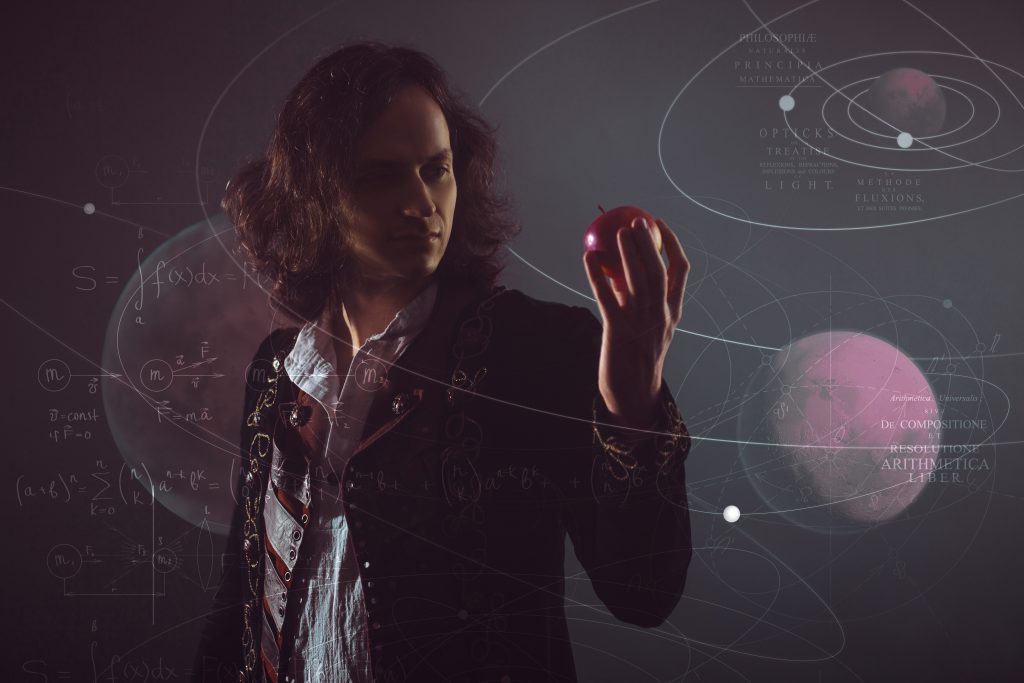Isaac Newton and the Timely Apple
Isaac Newton and the Timely Apple

Confucius Quote I
October 5, 2021
Learning Hacks to Make You a Better Learner
October 5, 2021Everyone is familiar with the myth of how an apple falling from a tree inspired Isaac Newton. This is one of the oldest and most famous scientific stories that led to his theory of gravitation and eventually classical mechanics.
Sir Isaac Newton is a pioneer in mathematics, physics, astronomy, and optics who came up with scientific ideas that were well before his time. Even though no one doubts his genius, the falling apple did initiate a moment of eureka that would forever change the world. This single event is an exciting examination of the relationship between cause and effect. Sometimes it’s the mundane events that inspire huge revelations.
The apple fall
Newton attended Trinity College, a constituent school of the University of Cambridge. In 1665 the university closed as a precaution against the Great Plague. It was during these years away from Cambridge that the development of his theories saw significant advancement. Young Newton, fresh from obtaining his bachelor’s degree, returned home to Woolsthorpe Manor in Lincolnshire. More importantly, he returned to the garden where the famous apple tree stood.
In the late summer of 1666, Newton was sitting underneath the tree when he observed an apple falling to the ground. When he witnessed the fruit falling, Newton began to question why the apple fell downwards rather than upwards or sideways. This inquiry eventually led to his understanding that the force that makes the apple descend is the same as the force that keeps the moon and planets in their orbits.
The effect on the scientific community
Modern science was still in its infant stages before Newton’s discovery. At that point, a significant advancement in scientific thought had already begun. The Scientific Revolution provided a novel perspective about nature and started to influence how people viewed the world. In 1687 Newton published Philosophiae Naturalis Principia Mathematica, where he expounded his laws of motion and the law of universal gravitation. This publication further emboldened scientific minds and is often credited with ending the Scientific Revolution and beginning the Age of Enlightenment.
The unassuming cause
Scientific historians have described, at great length, the significance of Newton’s discovery and its contribution to modern science. But what’s most interesting about this story is the minute, seemingly inconsequential cause that had a world-shaking effect. How would history have been different if the threat of the plague didn’t send young Isaac home from Trinity College? Where would science be if that sacred apple did not descend at the right place at the right time? We will never know, but the contributions these events made to the myth cannot be underestimated.
Fruits have been falling before people for several thousand years, but Newton’s observation was different. If not for his previous knowledge and avid curiosity, the importance of the apple’s descent would’ve been lost on him. This wasn’t a matter of luck but rather of opportunity that Newton’s astute mind made use of.
“Luck is what happens when preparation meets opportunity.” — Seneca
Final thoughts
History has proven that the most trivial causes have the potential for the most considerable effects. Let this knowledge encourage you to enhance your powers of observation to deduce the answer to questions you seek. For guidance, wikiHow outlines a lighthearted way to increase your observation skills by adopting a Sherlock Holmes approach. Be mindful of your surroundings, and stay curious. You may be one observation away from changing the world forever.
“Discovery consists of looking at the same thing as everyone else and thinking something different.” – Albert Szent-Györgyi


1 Comment
Everything is very open with a very clear clarification of the challenges. It was truly informative. Your website is very useful. Thank you for sharing!} {visit link|visit my webpage|visit here|visit|visit my website|visit our website|visit my web site|visit my website|Visit %domain_as_name%|visit my website